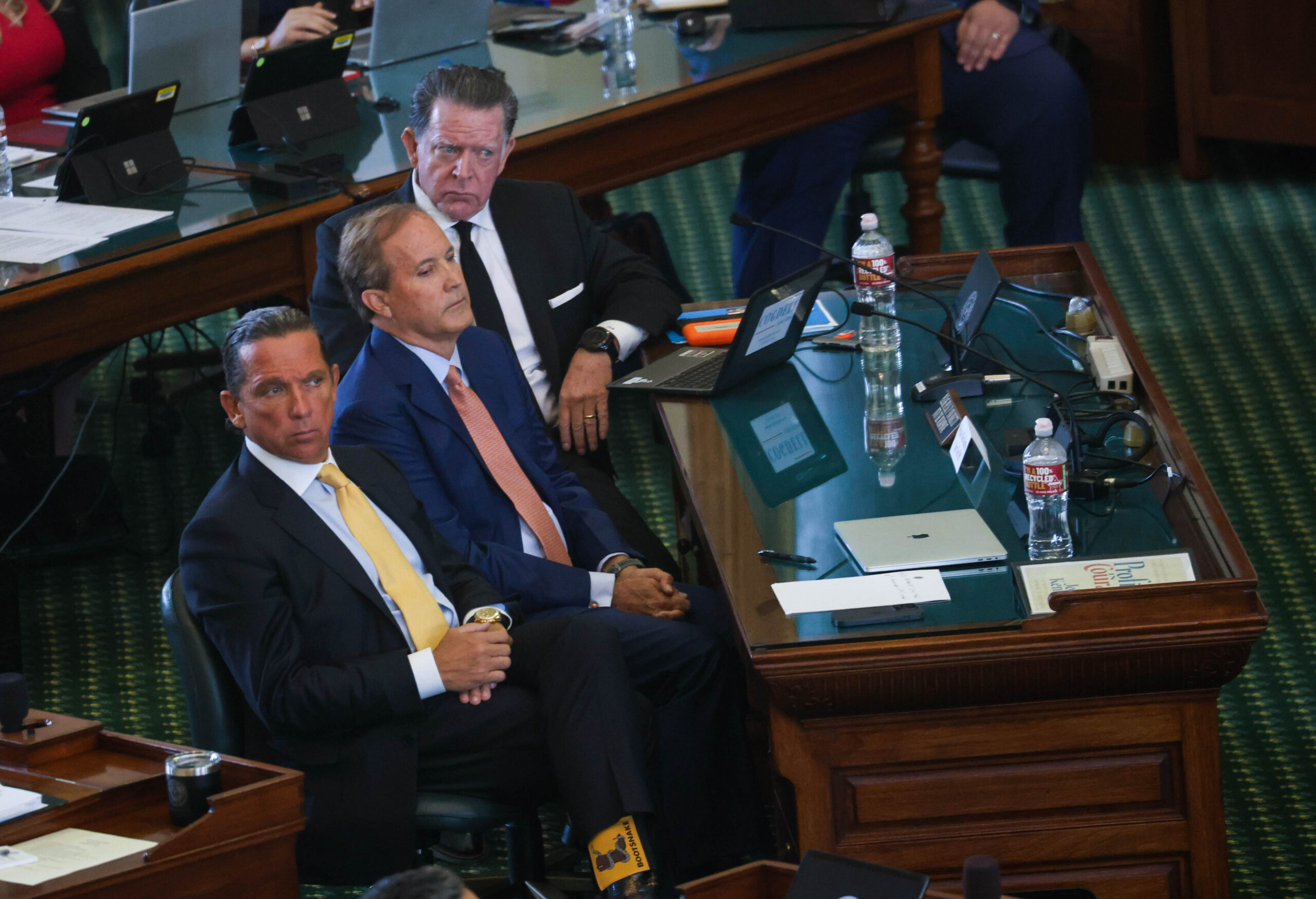A fissure in the Texas Republican party exploded into the open with the House impeachment of Attorney General Ken Paxton and the Senate’s decision not to convict.
The head of the Senate, Lt. Gov. Dan Patrick, excoriated his colleagues on the House side and drew into sharp relief the intra-party fight between Texas’ traditional, more business-focused Republicans and a far right wing of the party.
This all came out into the open after eight top staffers in the Attorney General’s Office reported Ken Paxton to the FBI, alleging bribery and abuse of office. Their report, filed just over three years ago, kicked off a political and legal fight still ongoing despite the Senate impeachment acquittal.
The whistleblowers either quit or were fired after reporting their concerns to the FBI, and four of them sued Paxton for wrongful termination and retaliation. The whistleblowers have not given up their fight. They have vowed to expose Paxton’s alleged wrongdoing by forcing him and others to testify.
» RELATED: Texas Attorney General Ken Paxton was acquitted and will remain in office. What now?
Blake Brickman served as deputy attorney general for policy and strategy under Paxton, and he’s one of the whistleblowers involved in the lawsuit. He said, in his eyes, a big reason the impeachment trial did not result in Paxton’s removal from office was because Paxton was not forced to take the stand.
“The judge in this case was Lt. Gov. Dan Patrick, and the single biggest thing that happened in the impeachment trial is Lt. Gov. Patrick protected Ken Paxton. How did he do that? He ruled that Ken Paxton did not have to testify,” Brickman said. “Attorney General Paxton never had to take the stand, never had to answer questions about the wrongdoing that he did and never had to invoke his Fifth Amendment rights, you know, in front of the jury, which in this case was 31 state senators.”

















